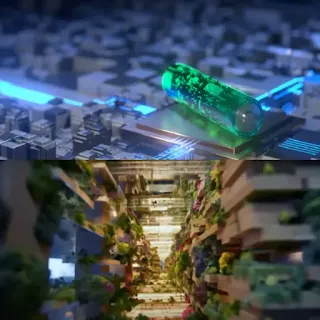Scientists have developed a promising new material used in battery design, which works in a similar way to soap in removing grease and dirt.
A recent study published in the journal Nature Materials explained that highly concentrated local electrolytes (electrolytes) could be the “missing piece” that completely opens the door to designing longer-lasting batteries.
The key to long-lasting batteries may lie in understanding how soap gets rid of dirt, as it forms tiny structures called micelles that act as a bridge between water and what is being cleaned by wrapping it into tiny structures.
Scientists from Brown University said that a similar process occurs in highly concentrated electrolytes, described as one of the most promising materials for battery design.
Electrolytes are essential in the energy storage process because they allow the electrical charge to pass between the two ends of the battery. This triggers the chemical reaction needed to convert stored chemical energy into electricity.
Batteries made of lithium metal have a greater energy storage capacity than current lithium-ion batteries.
But the researchers explained that the electrolytes typically used to power lithium-ion batteries do not do so as effectively in metal batteries.
“We want to improve and increase the energy density of batteries, meaning how much energy they store per cycle and how many cycles the battery lasts,” said study co-author Yu Qi, of Brown University. To do this, the materials inside traditional batteries must be replaced to make the batteries long-lasting. "That stores more energy is a reality - think of batteries that can power a phone for a week or more, or electric cars that go 500 miles."
Lithium-ion battery electrolytes are made from dissolved low-concentration salt. However, the new type of electrolyte is created by mixing high concentrations of salt in a solvent with another liquid called a diluent.
This makes electrolyte flow better so battery power can be conserved, scientists said.
They also found the electrolyte functions like soap.
“The paper presents a unified theory about why this electrolyte works better,” said study co-author Ben Li, from Oak Ridge National Laboratory. “The basic understanding of it came from the discovery that filamentous structures form inside this electrolyte as they do with soap.”
During laboratory tests, this type of electrolyte has shown promising results, but how it works has remained elusive. This has put a limit on how effective it is and how it can be developed further.
However, new understanding has helped scientists develop the correct concentrations needed to achieve optimal battery reactions.
The research team said this new understanding could help extend the life of lithium metal batteries.
What is special about the “city of the future” that Saudi Arabia is planning to build?
Among the most promising projects for the Kingdom of Saudi Arabia is “The Line” city project, a city that will provide the best living conditions for residents.
It is planned to build this city on the coast of NEOM, northwest of the Kingdom of Saudi Arabia, at the edge of the Gulf of Aqaba on the Red Sea. It will be residential complexes designed in a unique way, extending over a length of 170 km and a width of 200 metres. Both sides of the city will be covered with glass surfaces composed of reflective mirrors to give it a unique character. Frida.
“The Line” will be built on an area of approximately 34 square kilometers, and will accommodate about 9 million people, and green spaces and plants will cover a large portion of its internal area, to be a model for modern cities that comply with environmental preservation standards.
What will distinguish it most is that it will be free of traditional streets and cars, that is, free of carbon emissions that are harmful to the environment and humans. It will also rely on 100% renewable energy, and the city will be designed so that anyone in it can access all the facilities they need within 5 minutes of walking. There will be a high-speed train, connecting the two extreme points within “The Line” in a period not exceeding 20 minutes.
Those in charge of the city project indicated that “The Line” will attract the bright elite, as it will provide people with unparalleled social and economic experiences, in a city free of pollution and traffic accidents, in addition to world-class preventive health care.
The Line will work to achieve the goals of the Kingdom’s Vision 2030 in terms of economic diversification, as it will provide approximately 380,000 job opportunities, and will contribute to adding 180 billion riyals (48 billion US dollars) to the gross domestic product by 2030.
Saudi Crown Prince Mohammed bin Salman said about the aforementioned city project and the NEOM project: “The Line project will overcome the challenges facing humanity in urban life today, and will shed light on innovative alternative ways of living. We cannot ignore the challenges of living and the environmental crises that face them.” "The cities of the world are facing today, but NEOM is at the forefront in providing the latest and most innovative solutions to overcome these challenges. NEOM leads a team of the brightest minds in architecture, engineering and construction to embody the idea of vertical construction into a reality in which we live."
Tags:
electrolytes
lithium-ion battery
micelles
missing piece
neom
saudi arabia
science
soap materials
the line





